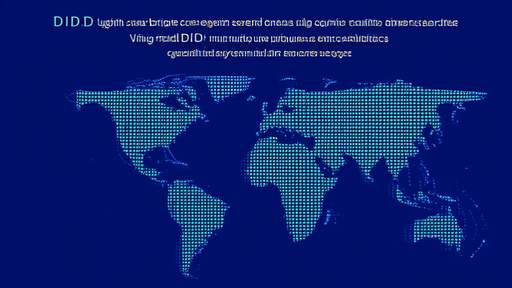The explosive growth of non-fungible tokens (NFTs) has revolutionized digital ownership, but it has also introduced complex challenges in enforcing intellectual property (IP) rights. Unlike traditional IP frameworks, NFTs operate in a decentralized ecosystem where jurisdictional boundaries blur, and enforcement mechanisms remain inconsistent. Creators, buyers, and platforms are grappling with ambiguities in licensing terms, jurisdictional conflicts, and the technical limitations of blockchain immutability.
The Ambiguity of Licensing Terms
One of the most pressing issues in NFT-related IP enforcement is the lack of standardized licensing agreements. Many NFT marketplaces allow creators to mint and sell tokens without clearly defining the scope of the buyer’s rights. While some projects adopt Creative Commons licenses, others embed custom terms that may be vague or unenforceable. This ambiguity often leads to disputes when buyers assume they own full commercial rights to the underlying artwork, only to discover that the original creator retains control over derivatives or reproductions.
Even when licenses are explicitly stated, they are rarely stored on-chain, making them difficult to verify. Smart contracts typically govern ownership transfers but seldom encode the nuances of IP rights. As a result, secondary sales and unauthorized usage frequently occur without repercussions, leaving creators with limited legal recourse.
Jurisdictional Challenges in a Borderless Space
NFT transactions occur on a global scale, yet IP laws remain territorially bound. A creator in one country may have strong copyright protections, while a buyer in another jurisdiction might exploit loopholes to bypass enforcement. The decentralized nature of blockchain complicates matters further—platforms hosting NFT sales may operate under different legal regimes, and disputes often require cross-border litigation, which is costly and time-consuming.
Enforcement becomes even murkier when anonymous or pseudonymous parties are involved. Unlike traditional commerce, where identities are verified, blockchain transactions can mask bad actors behind wallet addresses. Takedown requests or legal actions may stall if the infringer cannot be identified, leaving rights holders with few options beyond pursuing centralized platforms—a solution that contradicts the ethos of decentralization.
The Immutability Paradox
Blockchain’s defining feature—immutability—poses a unique challenge for IP enforcement. Once an NFT is minted, its record cannot be altered, even if the associated content infringes on someone’s copyright. While this ensures transparency and prevents fraud, it also means that unauthorized copies or disputed works remain permanently accessible unless platforms voluntarily intervene.
Some argue that decentralized storage solutions like IPFS exacerbate the problem, as content can be distributed across multiple nodes without a central point of control. Even if a court orders the removal of infringing material, technical and logistical barriers may prevent full compliance, leaving rights holders in a perpetual game of whack-a-mole.
The Role of Platforms and Evolving Solutions
In the absence of clear regulations, NFT marketplaces have taken ad hoc approaches to IP enforcement. Some, like OpenSea, rely on DMCA takedown notices, but their responsiveness varies. Others implement proactive measures, such as requiring proof of authorship before minting. However, these solutions are inconsistent and often reactive rather than preventive.
Emerging technologies, such as decentralized identity verification and on-chain licensing, could mitigate some challenges. Projects like Ethereum’s ERC-721 standard are exploring ways to embed licensing terms directly into smart contracts. Meanwhile, legal frameworks are slowly adapting, with the EU’s proposed MiCA regulation hinting at future oversight for crypto-assets, including NFTs.
Until these solutions mature, stakeholders must navigate a precarious landscape where innovation outpaces regulation. For creators, thorough licensing and legal safeguards are essential. For buyers, due diligence is critical to avoid costly disputes. And for platforms, the balance between decentralization and accountability remains an unresolved tension.

By /Jun 3, 2025

By /Jun 3, 2025

By /Jun 3, 2025

By /Jun 3, 2025

By /Jun 3, 2025

By /Jun 3, 2025

By /Jun 3, 2025

By /Jun 3, 2025

By /Jun 3, 2025

By /Jun 3, 2025

By /Jun 3, 2025

By /Jun 3, 2025

By /Jun 3, 2025

By /Jun 3, 2025

By /Jun 3, 2025

By /Jun 3, 2025

By /Jun 3, 2025

By /Jun 3, 2025

By /Jun 3, 2025

By /Jun 3, 2025